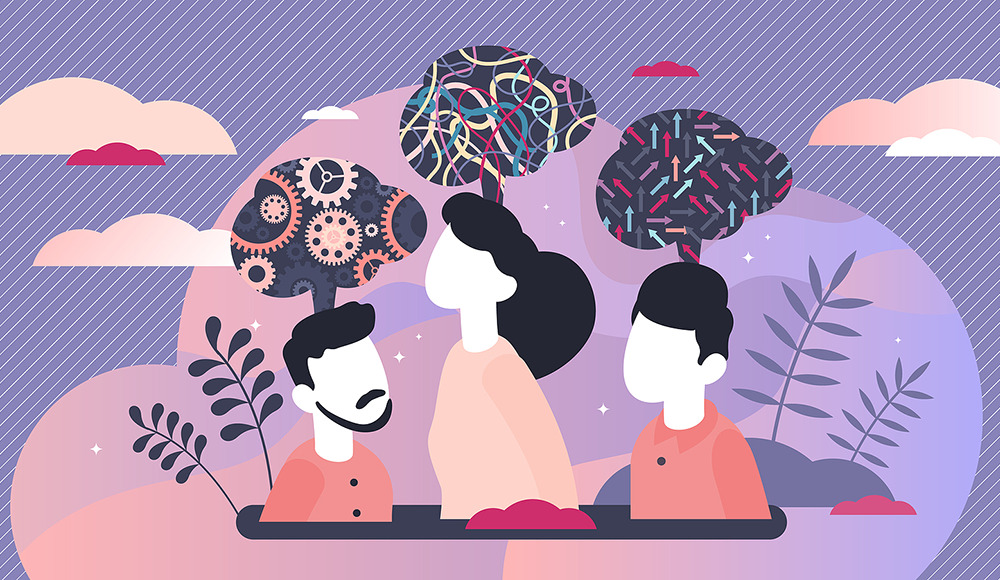The MBTI Is Backed by Solid Science. Why Do Some Claim Otherwise?

In the recent article titled “What HBO’s Persona Gets Right and (Mostly) Wrong About Personality Test,” the author makes some good points about the recent HBO documentary Persona. First, both the author of the article and the creators of the documentary were correct that some companies are misusing personality assessments. My company, The Myers-Briggs Company, has taken the consistent stance that the Myers-Briggs Type Indicator (MBTI) assessment should not be used for hiring or selection, and so we are in complete agreement on this point.
Unfortunately, the author of the article then recites several ideas about the MBTI which are patently false. Unfortunately, these ideas have circulated quite a bit in the media, so it’s not surprising they’re frequently dredged up. Fortunately, they’re easy to refute. As someone who has worked with the assessment for decades, has looked at the data behind it, and personally knows the team of researchers and PhD psychologists in charge of updating the MBTI, I need to correct a few things.
The author makes the familiar claim that the MBTI is pseudoscience. It’s too bad that this idea pops up so frequently, because a vast amount of data regarding the science behind the assessment is made publicly available. The MBTI is a psychometrically validated assessment built on decades of research. I’d venture to say it’s one of the most well-documented personality assessments out there. Much of the early research was conducted by Isabel Briggs Myers herself, who worked closely with a major test publisher in developing the original version. The research behind the original MBTI was immense, and that version has since been updated regularly.
What Does the Data Really Say About the MBTI?
The Myers-Briggs MBTI Global Manual 4th Edition reports test-retest correlations up to 15 weeks for the most recent version of the Myers-Briggs assessment averaging .87 for the four scales, indicating good reliability for each preference over long periods of time. The general standard for a scale on any psychometric assessment is to reach an internal consistency reliability of .70 or above, meaning the MBTI assessment exceeds accepted standards. (Note that these statistics only refer to the actual, official MBTI, not the many imitators you can find online.)
How does the MBTI measure up to other respected instruments? Comparatively, the NEO Five-Factor Inventory scores .89 and DiSC scores .79. Furthermore, the MBTI shows excellent reliability across ethnic groups, ranging from .80 to .92. This is a testament to the Myers-Briggs Company research team’s dedication to ensuring the assessment is not biased and furthering Isabel Briggs Myers’ vision of bridging gaps and embracing each other’s differences.
I could go on here, but the point is that the MBTI is not pseudoscience, has nothing to do with your horoscope, and has most certainly not been scientifically discredited. It meets all the standards for validity and reliability for a psychometric assessment put forth by both the American Psychological Association (APA) and the British Psychological Society (BPS). A simple bibliography search on the Center for Applications of Psychological Type reveals nearly 11,000 citations of the MBTI assessment. Attacks on the MBTI’s scientific basis have, perhaps unsurprisingly, prompted several respected academics to respond in its defense.
The MBTI Helps People in Practical Ways
The bottom line is that people use the MBTI because they find it to be accurate and useful in their lives. I’ve written extensively for Recruiter.com about how the assessment helps people explore careers they enjoy, navigate job interviews, develop a mindset for professional and personal growth, achieve greater well-being, and manage stress, among many other things.
This is, of course, just scratching the surface of what you can do when you better understand yourself and those around you. And that’s exactly what the MBTI provides: self-awareness and awareness of others.
I, for one, am thankful that Isabel Briggs Myers had the foresight, vision, and perseverance to defy the status quo and develop an assessment that provides so much value to so many people. The fact that it is backed by so much science should give everyone who has used it or is thinking about using it great confidence.
Michael Segovia is the lead trainer for The Myers-Briggs Company’s MBTI Certification Programs. He recently presented a TED talk reflecting on how type theory has informed his understanding of his own life story.

